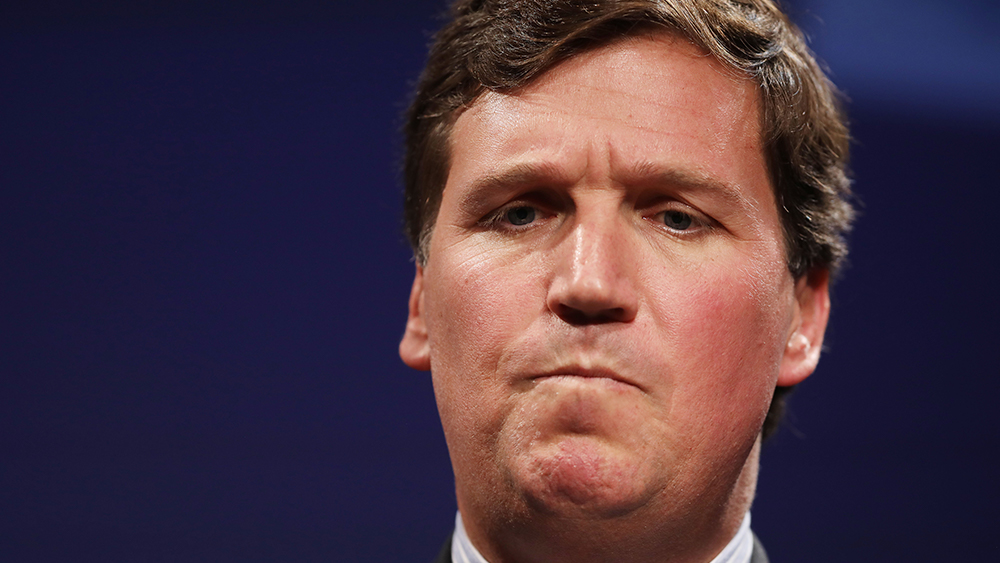
Pandemic is good for business. Just ask Tesla's Elon Musk and Amazon's Jeff Bezos. The world's two richest individuals have gained the most wealth since the start of the Wuhan coronavirus pandemic last year, according to the analysis of the Americans for Tax Fairness.
Musk boosted his account by a massive 628.5 percent while Bezos has grown his wealth by more than 60 percent from March 2020 until the date of the analysis. They have been trading places recently at the top of Forbes' "The Real-Time Billionaires List."
As of this writing, Bezos holds the top spot with $188.6 billion while Musk is second with $181 billion. (Related: Jeff Bezos is about to become your pharmacist as Amazon partners with Big Pharma to DRUG America for profit.)
According to the analysis, billionaires in the United States have increased their wealth by 38.6 percent since the start of the pandemic. In March 2020, the country's billionaires had a combined net worth of just under $3 trillion. As of the last count, they have a combined $4.1 trillion net worth. In that span, 46 millionaires have become billionaires bringing the total of American billionaires to 660.
During the same period, 18 million Americans remain jobless, 6.2 million are underemployed and hundreds of thousands of small businesses have been forced to close.
The $4.1 billion combined net worth of billionaires in the U.S. dwarfed the $2.4 trillion combined wealth of 165 million Americans in the bottom half of earners. Microsoft co-founder Bill Gates has raked in 23 percent more during the crisis while Facebook CEO Mark Zuckerberg has increased his wealth by nearly 70 percent.
The analysis shows the massive gap in economic gains and losses between the wealthiest individuals in the country and the working and middle class Americans who have been impacted by the pandemic-induced crisis.
Increase in wealth of world's top 10 richest more than enough to buy coronavirus vaccine for everyone
A separate analysis by Oxfam shows the world’s 10 richest billionaires have collectively jacked up their net worth by $540 billion from March 18 to December 31, 2020. That is nearly four times the amount needed to buy coronavirus vaccine for everyone in the world, which Oxfam estimated at $141.2 billion. Oxfam based its analysis of the wealthiest people on Forbes' "World's Billionaires List."
The analysis was part of Oxfam's report titled "The Inequality Virus."
"I remember the financial crisis and I was surprised by how fast billionaire fortunes bounced back," said Max Lawson, the head of inequality policy at Oxfam and one of the authors of the report. "Then it took four to five years. But that pales in significance to the coronavirus because they bounced back in just nine months. None of us expected that."
The report was released on the opening day of the World Economic Forum. The annual gathering of world, civic and business leaders is taking place online this week. According to the report, the coronavirus pandemic has the potential to lead to an increase in inequality in almost every country at once. It also noted that over two million people have died and hundreds of millions of people are being forced into poverty while many of the richest individuals and corporations are thriving.
In its report, Oxfam called on governments to step in to remedy the growing gaps in inequality. It also recommended taxes on the wealthy, increased public spending on health care, free universal access to quality health care and permanent "social protection" for the poorest in society.
Institute of Development Studies Director Melissa Leach said COVID-19 is not unique in the way it has affected different populations.
"Epidemics are always mirrors to society, and what this has revealed is a highly unequal world," she said.
"We are seeing rises in wealth amongst very few, rises in poverty, and gaps between the rich and the poor. And what we’ve learned over many decades is that the gaps in themselves also matter because they have knock-on effects not just for the poor but for the way democracies function and the ways economic policies unfold."
Leach noted that inequalities make it more difficult to have a stable society, a healthy society, a secure society, a peaceful society and to have a functioning democracy.
Follow Outbreak.news more news and information about the pandemic.
Sources include:
Please contact us for more information.





















